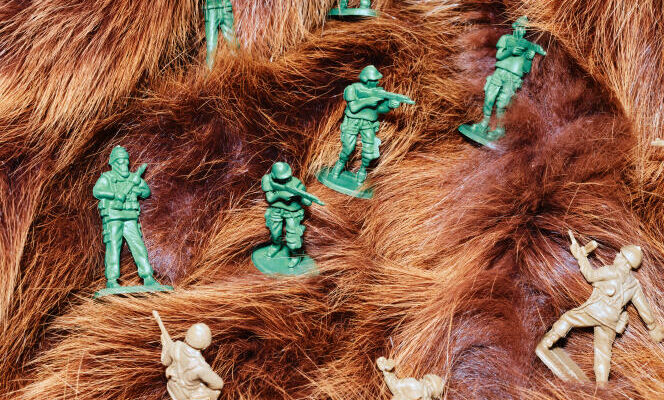Paris, in the heart of the Marais, at lunchtime. Inside a café, on the corner of Rue de Turenne and Rue des Minimes, in the 3rd arrondissement, customers stop, delighted, in front of the bench where an adorable gray and white cat sits. “Bringing your cat to the café is not common!” », exclaims a lady. Michaël Prazan, his owner, smiles, accustomed to the tender reactions his pet provokes wherever he takes him. But what people don’t know is that they are dealing with a survivor. Michaël Prazan found him on the side of a road in Siberia, where the writer and director went for a documentary on the remains of the gulag, for France Télévisions.
“The car that was transporting us suddenly swerved to the side. I was wondering what was going on when our fixer rushed out of the vehicle. She came back with a little bloody cat, who was barely moving. » At a temperature of −50°C, it is likely that Varlam (named in homage to Varlam Shalamov, the great gulag writer) owes his life to this encounter. After becoming the team’s mascot during the month of filming, Varlam sat on Michaël Prazan’s lap on the plane taking him back to France. A story from which the director has created a magnificent narrative, Varlam (Shore, 2023). “Initially, I thought about writing a children’s album, because I found that the story of this cat was a wonderful way to interest children in the history of the gulag. The animal functions as a metaphor for the human. His struggle for survival moved me because it resonated, echoing, with the struggle of the millions of gulag deportees in Siberia. And like the survivors, he owed his survival only to luck, to chance which led him to meet the right person. His fate is a terrible illustration of the cruelty of life and its miracle too. »
We thus learn that Varlam’s small round ears, which make passers-by crack, are due to an injury, since, under the effect of the cold, the tips have frozen and come off. As if he understands that we are talking about him, the cat stretches and gazes into ours with his green gaze, seeming to want to remind us of the trials he has gone through and his moral superiority over kibble-fed house cats. organic.
A tell-tale raccoon
In fact, in the worst moments of history, the animal seems to act as a revealer of our humanity. Taking care of him means, in a sense, that war or the ravages of a totalitarian regime have not succeeded in destroying man’s capacity for compassion. “ During the First World War, in the trenches, soldiers took care of pets »recalls Eric Baratay, historian specializing in the relationships between men and animals, who traced the history of these “four-legged soldiers” in a book titled Beasts of the Trenches. Forgotten experiences (CNRS Editions, 2013). “They were domestic animals abandoned by fleeing civilians, and which played a considerable role in the morale of the poilus. »
You have 55% of this article left to read. The rest is reserved for subscribers.
